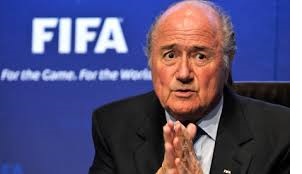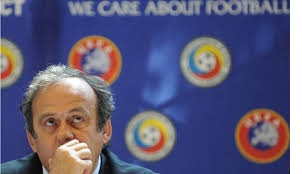Introduction: FIFA’s TPO ban and its compatibility with EU competition law.
Day 2: Third-party entitlement to shares of transfer fees: problems and solutions
Day 3: The Impact of the TPO Ban on South American Football.
Day 4: Third Party Investment from a UK Perspective.
Day 5: Why FIFA's TPO ban is justified.
Editor's note: This is the first blog of our symposium on FIFA's TPO ban, it features the position of La Liga regarding the ban and especially highlights some alternative regulatory measures it would favour. La Liga has launched a complaint in front of the European Commission challenging the compatibility of the ban with EU law, its ability to show that realistic less restrictive alternatives were available is key to winning this challenge. We wish to thank La Liga for sharing its legal (and political) analysis of FIFA's TPO ban with us.
INTRODUCTION
The Spanish Football League (La Liga) has argued for months that the funding of clubs through the conveyance of part of players' economic rights (TPO) is a useful practice for clubs. However, it also recognized that the
practice must be strictly regulated. In July 2014, it approved a provisional regulation that was sent to many of the relevant stakeholders, including FIFA’s Legal Affairs Department. More...
The world of professional cycling and doping have been closely intertwined
for many years. Cycling’s International governing Body, Union Cycliste
Internationale (UCI), is currently trying to clean up the image of the sport
and strengthen its credibility. In order to achieve this goal, in January 2014
the UCI established the Cycling Independent Reform Commission (CIRC) “to conduct a wide ranging independent investigation
into the causes of the pattern of doping that developed within cycling and allegations
which implicate the UCI and other governing bodies and officials over
ineffective investigation of such doping practices.”[1] The final report was submitted to the
UCI President on 26 February 2015 and published on the UCI website on 9 March 2015. The report
outlines the history of the relationship between cycling and doping throughout
the years. Furthermore, it scrutinizes the role of the UCI during the years in
which doping usage was at its maximum and addresses the allegations made
against the UCI, including allegations of corruption, bad governance, as well
as failure to apply or enforce its own anti-doping rules. Finally, the report turns
to the state of doping in cycling today, before listing some of the key practical
recommendations.[2]
Since the day of publication, articles and commentaries (here and here) on the report have been burgeoning and many
of the stakeholders have expressed their views (here and here). However, given the fact that the report is
over 200 pages long, commentators could only focus on a limited number of
aspects of the report, or only take into account the position of a few
stakeholders. In the following two blogs we will try to give a comprehensive
overview of the report in a synthetic fashion.
This first blogpost will focus on the relevant findings and
recommendations of the report. In continuation, a second blogpost will address
the reforms engaged by the UCI and other long and short term consequences the
report could have on professional cycling. Will the recommendations lead to a
different governing structure within the UCI, or will the report fundamentally
change the way the UCI and other sport governing bodies deal with the doping
problem? More...
'Can't fight corruption with con tricks
They use the law to commit crime
And I dread, dread to think what the future
will bring
When we're living in gangster time'
The Specials - Gangsters
The pressing need for change
The
Parliamentary Assembly (PACE) of the Council of Europe (CoE), which is composed
of 318 MPs chosen from the national parliaments of the 47 CoE member states,
unanimously adopted a report entitled ‘the reform of
football’
on January 27, 2015. A draft resolution on the report will be debated during the
PACE April 2015 session and, interestingly, (only?) FIFA’s president Sepp
Blatter has been sent an invitation.
The PACE report
highlights the pressing need of reforming the governance
of football by FIFA and UEFA respectively. Accordingly, the report contains
some interesting recommendations to improve FIFA’s (e.g., Qatargate[1]) and
UEFA’s governance (e.g., gender representation). Unfortunately, it remains unclear
how the report’s recommendations will actually be implemented and enforced.
The report is a
welcomed secondary effect of the recent Qatargate directly involving former
FIFA officials such as Jack Warner, Chuck Blazer, and Mohamed Bin Hammam[2] and
highlighting the dramatic failures of FIFA’s governance in putting its house in
order. Thus, it is undeniably time to correct the governance of football by FIFA
and its confederate member UEFA – nolens
volens. The real question is how to do it.


Photograph:
Fabrice Coffrini/AFP/Getty Images Photograph:
Octav Ganea/AP
More...
On 15
April 2014, the Cairo Economic Court (the “Court") issued a seminal
judgment declaring the broadcasting of a football match a sovereign act of State.[1]
Background
In Al-Jazeera
v. the Minister of Culture, Minister of Information, and the Chairman of the
Board of Directors of the Radio and Television Union, a case registered
under 819/5JY, the Al-Jazeera TV Network (the “Plaintiff” or “Al-Jazeera”)
sued the
Egyptian Radio and Television Union (“ERTU” or the “Union”) et
al. (collectively, the “Respondents”) seeking compensation for
material and moral damages amounting to three (3) million USD, in addition to
interest, for their alleged breach of the Plaintiff’s exclusive right to
broadcast a World Cup-qualification match in Egypt. Al-Jazeera obtained such
exclusive right through an agreement it signed with Sportfive, a sports marketing company that had
acquired the
right to broadcast Confederation of African Football (“CAF”) World
Cup-qualification matches.
ERTU
reportedly broadcasted the much-anticipated match between Egypt and Ghana live on
15 October 2013 without obtaining Al-Jazeera’s written approval, in violation
of the Plaintiff’s intellectual property rights.
More...
The selling of media rights is currently a hot
topic in European football. Last week, the English Premier League cashed in
around 7 billion Euros for the sale of its live domestic media rights (2016 to
2019) – once again a 70 percent increase in comparison to the previous tender. This
means that even the bottom club in the Premier League will receive
approximately €130 million while the champions can expect well over €200
million per season.
The Premier League’s new deal has already led
the President of the Spanish National Professional Football League (LNFP),
Javier Tebas, to express his concerns that this could see La Liga lose its position as one of Europe’s leading leagues. He reiterated
that establishing a centralised sales model in Spain is of utmost importance,
if not long overdue.
Concrete plans to reintroduce a system of joint
selling for the media rights of the Primera
División, Segunda División A, and la
Copa del Rey by means of a Royal Decree were already announced two years
ago. The road has surely been long and bumpy. The draft Decree is finally on
the table, but now it misses political approval. All the parties involved are
blaming each other for the current failure: the LNFP blames the Sport
Governmental Council for Sport (CSD) for not taking the lead; the Spanish Football
Federation (RFEF) is arguing that the Federation and non-professional
football entities should receive more money and that it should have a stronger
say in the matter in accordance with the FIFA Statutes; and there are widespread rumours that the two big earners, Real Madrid and FC Barcelona, are actively
lobbying to prevent the Royal Decree of actually being adopted.
To keep the soap opera drama flowing, on 30 December 2014, FASFE (an
organisation consisting of groups of fans, club members, and minority
shareholders of several Spanish professional football clubs) and the
International Soccer Centre (a movement that aims to obtain more balanced and
transparent football and basketball competitions in Spain) filed an antitrust complaint with the European Commission against the LNFP. They
argue that the current system of individual selling of LNFP media rights, with
unequal shares of revenue widening the gap between clubs, violates EU
competition law.

Source:http://www.gopixpic.com/600/buscar%C3%A1n-el-amor-verdadero-nueva-novela-de-televisa/http:%7C%7Cassets*zocalo*com*mx%7Cuploads%7Carticles%7C5%7C134666912427*jpg/
More...
Class actions are among the most
powerful legal tools available in the US to enforce competition rules. With more
than 75 years of experience, the American system offers valuable lessons about
the benefits and drawbacks of class actions for private enforcement in
competition law. Once believed of
as only a US phenomenon, class actions are slowly becoming reality in the EU. After the
adoption of the Directive on damages
actions in November 2014, the legislative initiative in collective redress
(which could prescribe a form of class actions) is expected in 2017.[1]
Some
pro-active Member States have already taken steps to introduce class actions in
some fashion, like, for example, Germany.
What
is a class action? It is a lawsuit that allows
many similar legal
claims with a common interest to be bundled into a single
court action. Class actions facilitate
access to justice for potential claimants, strengthen the negotiating power and
contribute
to the efficient administration of justice. This legal mechanism
ensures a possibility to claim cessation of
illegal behavior (injunctive relief) or to claim compensation for damage
suffered (compensatory relief). More...
There has been a lot
of Commission interest in potential state aid to professional football
clubs in various Member States. The huge
sums of money involved are arguably an important factor in this interest and
conversely, is perhaps the reason why state aid in rugby union is not such a
concern. But whilst the sums of money
may pale into comparison to those of professional football, the implications
for the sport are potentially no less serious.
At the end of the
2012/2013 season, Biarritz Olympique (Biarritz) were relegated from the elite
of French Rugby Union, the Top 14 to the Pro D2. By the skin of their teeth, and as a result
of an injection of cash from the local
council (which amounted
to 400,000€), they were spared administrative relegation to the amateur league
below, the Fédérale 1, which would have occurred as a result of the financial
state of the club.More...
Introduction
The year 2015 promises to be crucial, and possibly revolutionary, for
State aid in football. The European Commission is taking its time in concluding
its formal investigations into alleged State aid granted to five Dutch clubs
and several Spanish clubs, including Valencia CF and Real Madrid, but the final decisions are due for 2015.
A few months ago, the Commission also received a set of fresh State aid complaints originating from the EU’s newest Member State
Croatia. The complaints were launched by a group of minority shareholders of
the Croatian football club Hajduk Split, who call themselves Naš Hajduk. According to Naš Hajduk, Hajduk Split’s eternal rival, GNK Dinamo
Zagreb, has received more than 30 million Euros in unlawful aid by the city of
Zagreb since 2006.More...